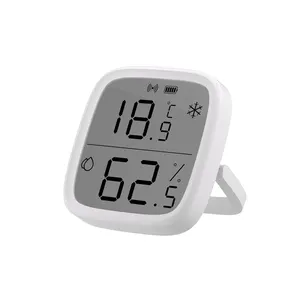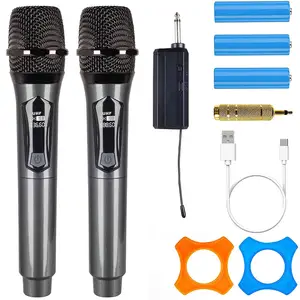Popular in your industry




















































Related Searches:


















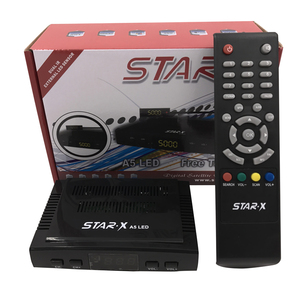
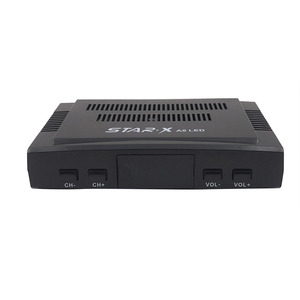
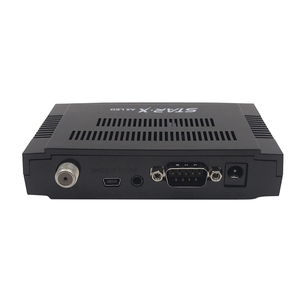
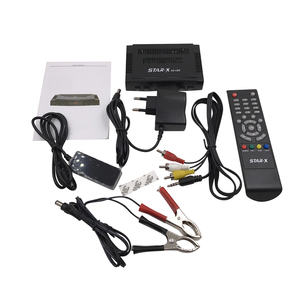
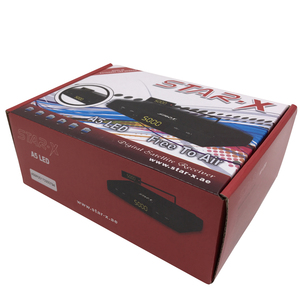


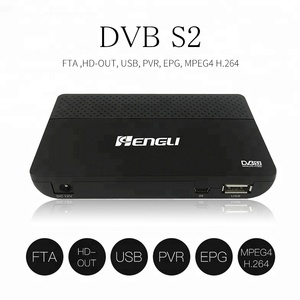












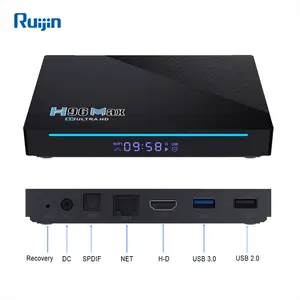









































































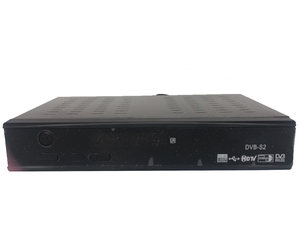
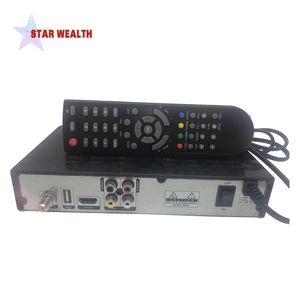


















Top categories
About max digital satellite receiver
What is Digital Satellite Receiver By Max
Digital Satellite Receivers are essential devices for anyone looking to access a vast array of television channels and content, particularly for those who require access to international or premium channels. These receivers serve as the gateway to satellite broadcasting, enabling users to capture and decode digital signals that are typically transmitted from a satellite orbiting the Earth. Through the innovative use of digital technology, these receivers convert the signals into a format that can be viewed on a standard television, offering a superior audiovisual experience.
The target audience for Digital Satellite Receivers includes both individual consumers and businesses that require access to a wide range of channels for entertainment, news, or information. This includes viewers in residential homes who seek to enhance their television viewing options, as well as commercial establishments such as hotels or restaurants that offer satellite television as an amenity to patrons.
Digital Satellite Receivers operate on the principle of receiving signals from a satellite, which are then demodulated and decrypted to provide clear audio and video signals. They come equipped with various features such as Electronic Program Guides (EPG), High Definition (HD) support, and the ability to connect to home networks for media sharing and on-demand services. The receivers are typically connected to a satellite dish and require a clear line of sight to the satellite to function optimally.
Types of Digital Satellite Receiver by Max
Max Digital Satellite Receivers come in various types to cater to different preferences and requirements. Here are some common types:
-
Standard Definition (SD) Digital Satellite Receiver: These are the most common type and are capable of receiving standard definition television signals. They usually have basic features and are suitable for users who do not require high-definition viewing.
-
High Definition (HD) Digital Satellite Receiver: For viewers who wish to watch television programs in enhanced definition, HD receivers offer superior picture quality. They are ideal for settings where crisp, clear images are paramount, such as sports bars or upscale entertainment venues.
-
4K Ultra High Definition (UHD) Digital Satellite Receiver: The pinnacle of digital viewing, 4K UHD receivers are designed to deliver stunningly detailed images with a resolution four times higher than that of full HD. These receivers are typically used with large-screen and high-end television sets.
-
Android TV Digital Satellite Receiver: Integrating the Android TV operating system, these receivers provide access to streaming services and apps through the device, effectively turning your TV into a smart TV. They combine live television with on-demand content and internet browsing capabilities.
-
Free-To-Air (FTA) Digital Satellite Receiver: Unlike other types which require a subscription, FTA receivers are designed to receive unencrypted satellite transmissions, providing access to free-to-air channels from around the world.
How to choose Digital Satellite Receiver By Max
Selecting the right digital satellite receiver for your business involves considering several factors such as compatibility with the type of satellite signals you wish to receive, desired features, and specific operational considerations. Here's what businesses should keep in mind:
-
Signal Type: Assess whether you require a receiver that can handle DVB-S, DVB-S2, or DVB-S2X signals based on the satellites you wish to access.
-
Resolution Support: High-definition content is now the standard, so choosing a receiver that can decode and display such broadcasts is crucial.
-
Recording Capabilities: Consider if you need a receiver with recording features. This allows you to pause live TV and schedule recordings, which can be advantageous for certain business applications.
-
Number of Tuners: The number of tuners determines how many channels you can watch or record simultaneously. More tuners mean more channels but also potentially more complex setup and higher costs.
-
Connectivity Options: Ensure that the receiver has the necessary connectivity options such as HDMI ports, USB ports for external media playbacks, Wi-Fi for wireless connectivity, and any other specific requirements for your business operations.
-
User Interface: A user-friendly interface is essential for quick navigation and ease of use. This is particularly important in commercial settings where staff may need to operate the system.
About Digital Satellite Receiver By Max on Alibaba.com
For businesses seeking reliable digital satellite receivers, Alibaba.com stands out as a global wholesale marketplace connecting you with an extensive network of suppliers. Whether you're looking to equip a fleet of commercial vehicles or stock up on inventory for resale, Alibaba.com offers an array of options that cater to diverse business needs without compromising on choice or quality.
The platform's user-generated filtering system allows buyers to navigate through products efficiently while ensuring they find exactly what they're looking for—be it DVB-S2 receivers for high-definition programming or robust IPTV solutions for seamless streaming. With detailed product descriptions and supplier transparency, businesses can make informed purchasing decisions with confidence.
Moreover, Alibaba.com's Trade Assurance service provides an additional layer of security by safeguarding payments until delivery is confirmed. This commitment to facilitating secure transactions underscores Alibaba.com's dedication to fostering trust within its trading community. By choosing this platform for sourcing digital satellite receivers, businesses gain access not only to a vast selection but also to a streamlined procurement process tailored for international trade.
Common FAQs for Digital Satellite Receiver By Max
What is a digital satellite receiver?
A digital satellite receiver is a device that processes satellite broadcast signals into audio and video for display on a television, projector, or monitor. It's essential for receiving high-quality satellite TV channels and is commonly used in households and businesses.
How does a digital satellite receiver work?
Digital satellite receivers receive digital signals from satellites in space and convert them into usable content for display on a TV or monitor. This process involves receiving satellite signals, decoding them into a viewable format, and then displaying them as channels or video.
What are the key features to look for in a digital satellite receiver for commercial use?
For commercial use, key features include high-resolution video output, extensive channel capacity, network connectivity options for integration into larger systems, and robust security features to protect against unauthorized access.
Can digital satellite receivers be used with any TV?
Digital satellite receivers are designed to be compatible with most modern TVs, but it's important to check the specific inputs and outputs to ensure seamless integration. Some may require additional hardware or software setup for full functionality.
How do I know which type of digital satellite receiver is suitable for my business?
The type of digital satellite receiver suitable for your business will depend on your specific needs, such as the number of channels required, the quality of the signal needed for your displays or presentations, integration capabilities if necessary, and the type of content you plan to receive.
What should I consider when choosing a digital satellite receiver for a sports bar or restaurant?
For sports bars and restaurants, consider receivers with higher channel capacities and support for HD broadcasting. Additionally, the ability to split the signal to multiple displays is beneficial for venues with multiple viewing areas.
Are there digital satellite receivers that support 4K resolution?
Yes, some advanced digital satellite receivers support 4K resolution. It's important to check the specifications of the receiver to ensure it meets the resolution requirements of your display or projector.
Can I record programs with a digital satellite receiver?
Many digital satellite receivers come with built-in DVR functions that allow you to record your favorite programs for later viewing. This feature is particularly useful for businesses that wish to record content for auditing or educational purposes.
What kind of network connectivity options are available for digital satellite receivers?
Digital satellite receivers may include various network connectivity options such as Ethernet ports or Wi-Fi. These are useful for businesses that require internet connectivity for accessing additional satellite TV channels or services.
Is it possible to use a single digital satellite receiver for multiple TVs?
Some digital satellite receivers are designed to support multiple TVs. However, it's important to check the specifications of the receiver to ensure it can accommodate your specific setup while still meeting your business needs.
Do all digital satellite receivers come with HDMI support?
Not all digital satellite receivers have HDMI support. If you require this feature for connectivity to HD displays or other devices, ensure the receiver has HDMI ports.
How important is the security protocol when choosing a digital satellite receiver?
Security protocols are crucial if your business deals with sensitive information. Choosing a receiver with advanced encryption standards like BISS 2 is essential to prevent unauthorized access to the content.
What is the purpose of PVR (Personal Video Recorder) Receivers in digital satellite receivers?
PVR receivers are designed to record programs onto an external storage device which can later be played back or transferred. They are commonly used in commercial settings for content archiving and time-shifting capabilities.
Can I customize a digital satellite receiver based on my business needs?
Many suppliers offer customization options for digital satellite receivers, such as branding or specific features tailored to your business requirements. It's advisable to discuss customization with suppliers directly.
How do I know if a digital satellite receiver supports 3D imaging?
Look for terms such as Full HD 3D, 3D compatibility, or 3D-ready in the product specifications. This indicates that the receiver can process 3D content from satellite channels and that it meets certain standards for quality.
Are there any storage limitations on digital satellite receivers?
Storage limitations can vary between models. Some commercial-use receivers may come with built-in storage solutions or options to expand storage capacity through external drives or network-attached storage (NAS) systems.
What is the difference between a free-to-air and a subscription-based digital satellite receiver?
Free-to-air receivers provide access to satellite channels without any subscription fees, while subscription-based receivers require a paid service or subscription to access premium content.
How does weather affect my digital satellite receiver's performance?
Weather conditions such as heavy rain or storms can potentially interfere with satellite signals. However, most modern satellite receivers are designed to handle mild weather conditions without significant issues.
Can I use my existing satellite dish for a new digital satellite receiver?
You may be able to use your existing satellite dish if it is compatible with the new receiver's specifications. Check the manual or product specifications to ensure compatibility.
What should I look for in terms of warranty or service guarantees when purchasing a digital satellite receiver for my business?
Look for warranties that cover both hardware and software. Service guarantees might include technical support or replacement if your receiver encounters issues within a certain timeframe or usage limit.



